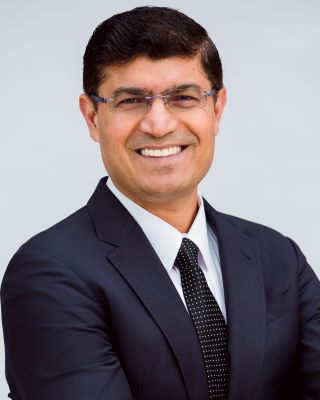Rohit Loomba, MD, MHSc, FAASLD

Biography
Dr. Rohit Loomba is a Professor of Medicine (with tenure), Chief, Division of Gastroenterology and Hepatology, at the University of California at San Diego. He is an internationally recognized thought leader in translational research and innovative clinical trial design in nonalcoholic steatohepatitis (NASH), and non-invasive assessment of liver disease using advanced imaging modalities.
Dr. Loomba is the founding director of the UCSD MASLD Research Center, which fosters collaborative team science where a multi-disciplinary team of researchers are conducting cutting edge research in all aspects of NAFLD including non-invasive biomarkers, genetics, epidemiology, clinical trial design, imaging end-points, and integrated OMICs using microbiome, metabolome and lipidome. This integrated approach has led to several innovative applications such as establishment of MRI-PDFF as a non-invasive biomarker of treatment response in clinical trials in NASH, which has now been adopted in more than 100 clinical trials conducted worldwide. His research has led to several advances in clinical practice and replaced the need for liver biopsy with the use of advanced MRI based methods as well as ultrasound sound based methods for clinical risk stratification of liver fibrosis. His work has led to FDA approval of therapies in NASH and leads several large Phase 3 treatment trial program globally.
He holds several patents on non-invasive biomarkers of NASH and fibrosis.
His research is funded by the National Institutes of Health as a Principal Investigator including an R01, three U01 (two NIDDK and one from NIAAA), clinical core director of P30 (NIDDK) and project director P01 (NHLBI) grant mechanisms, Foundation of NIH, as well as several large multicenter, multi-million dollar investigator initiated research projects funded by the industry.
Dr. Loomba has published more than 600 manuscripts in high impact journals such as the New England Journal of Medicine, Lancet, JAMA, Science, Cell, Nature among others that cover the entire spectrum of research in MASH from clinical trials to basic mechanisms. He has an H-index of 153. He is listed among the top 1% of the globally highly cited scientists across all fields 2019-2023. He is an elected member of the American Society of Clinical Investigation (ASCI), and the Association of American Physicians (AAP).